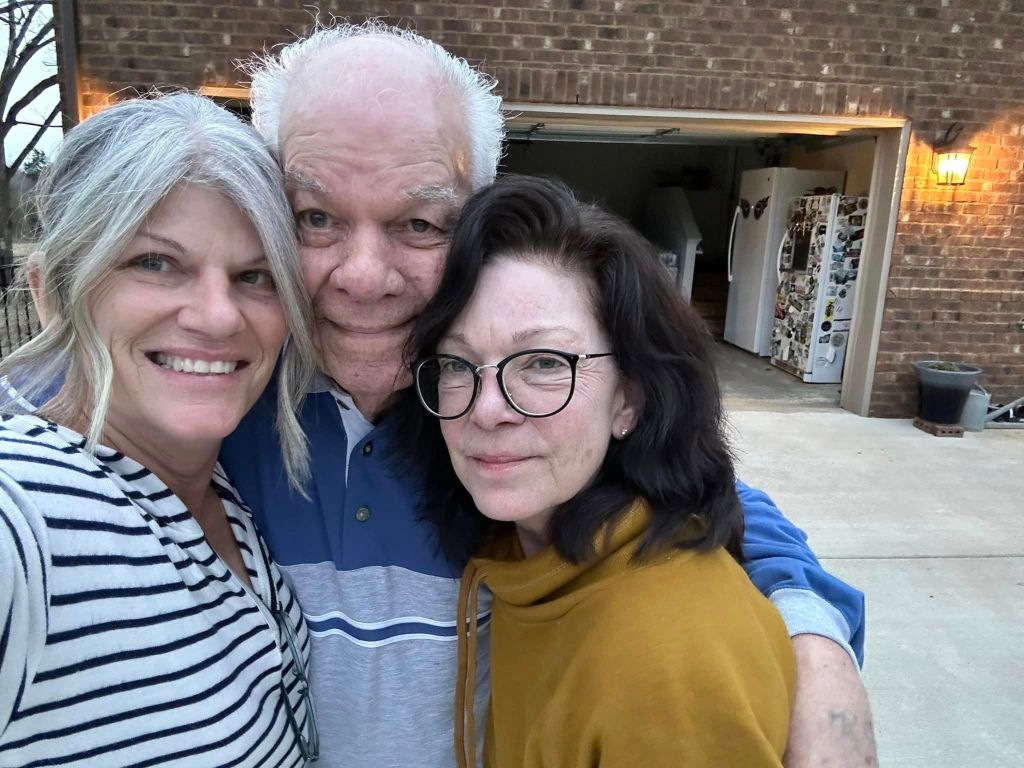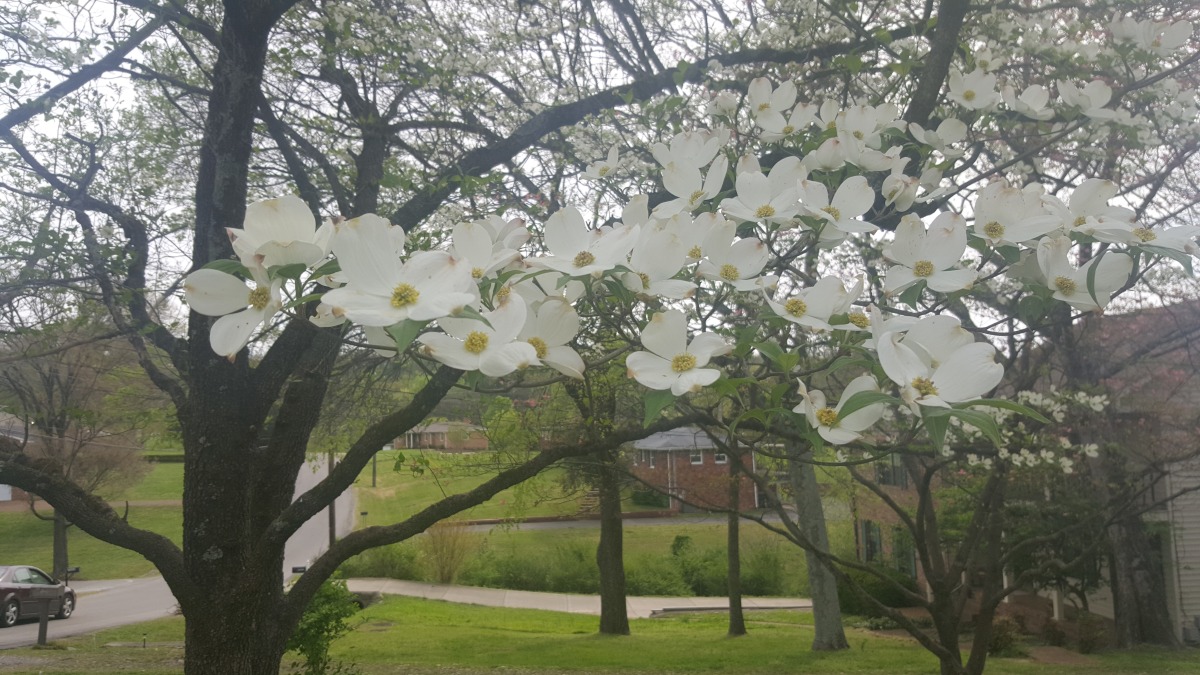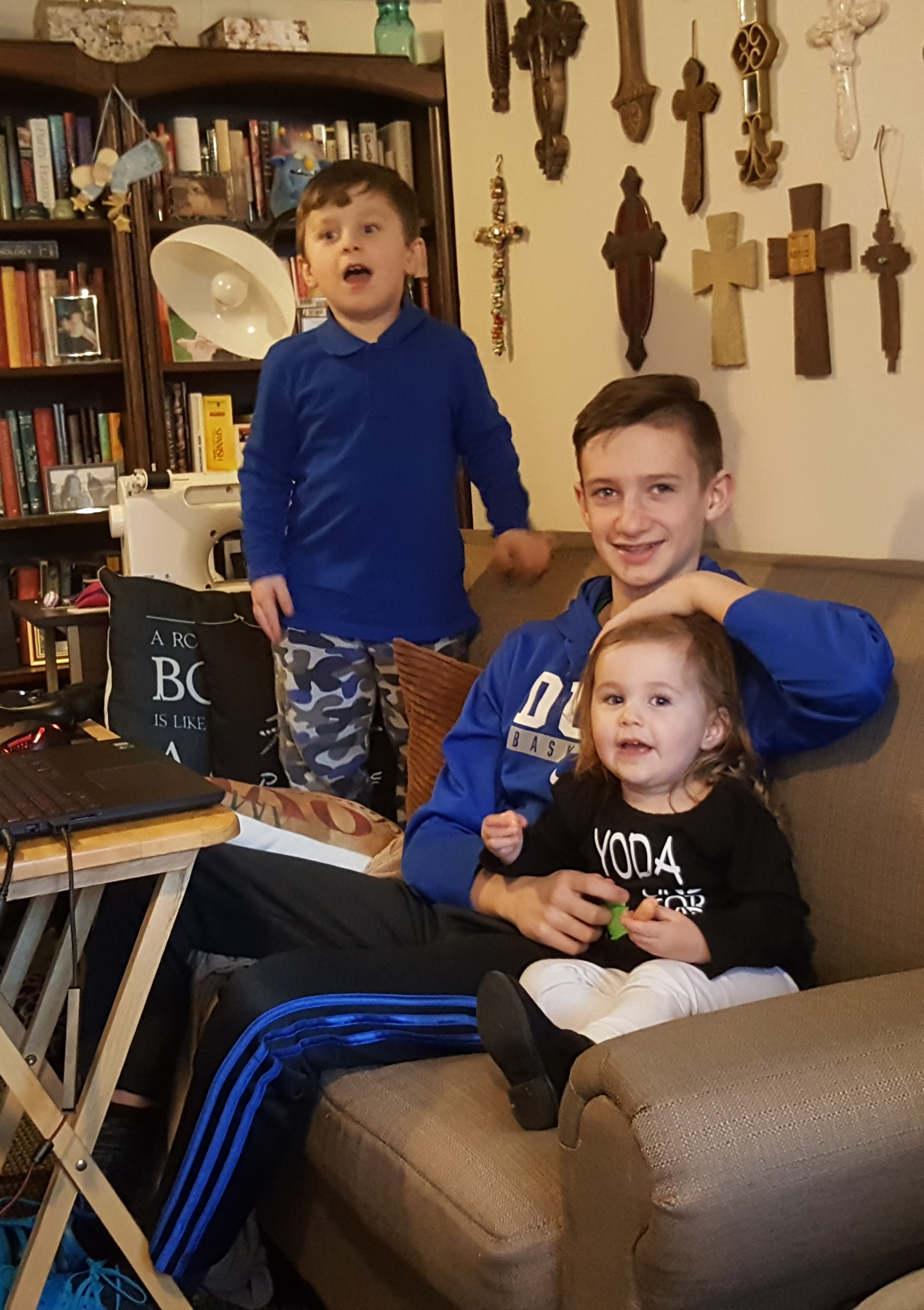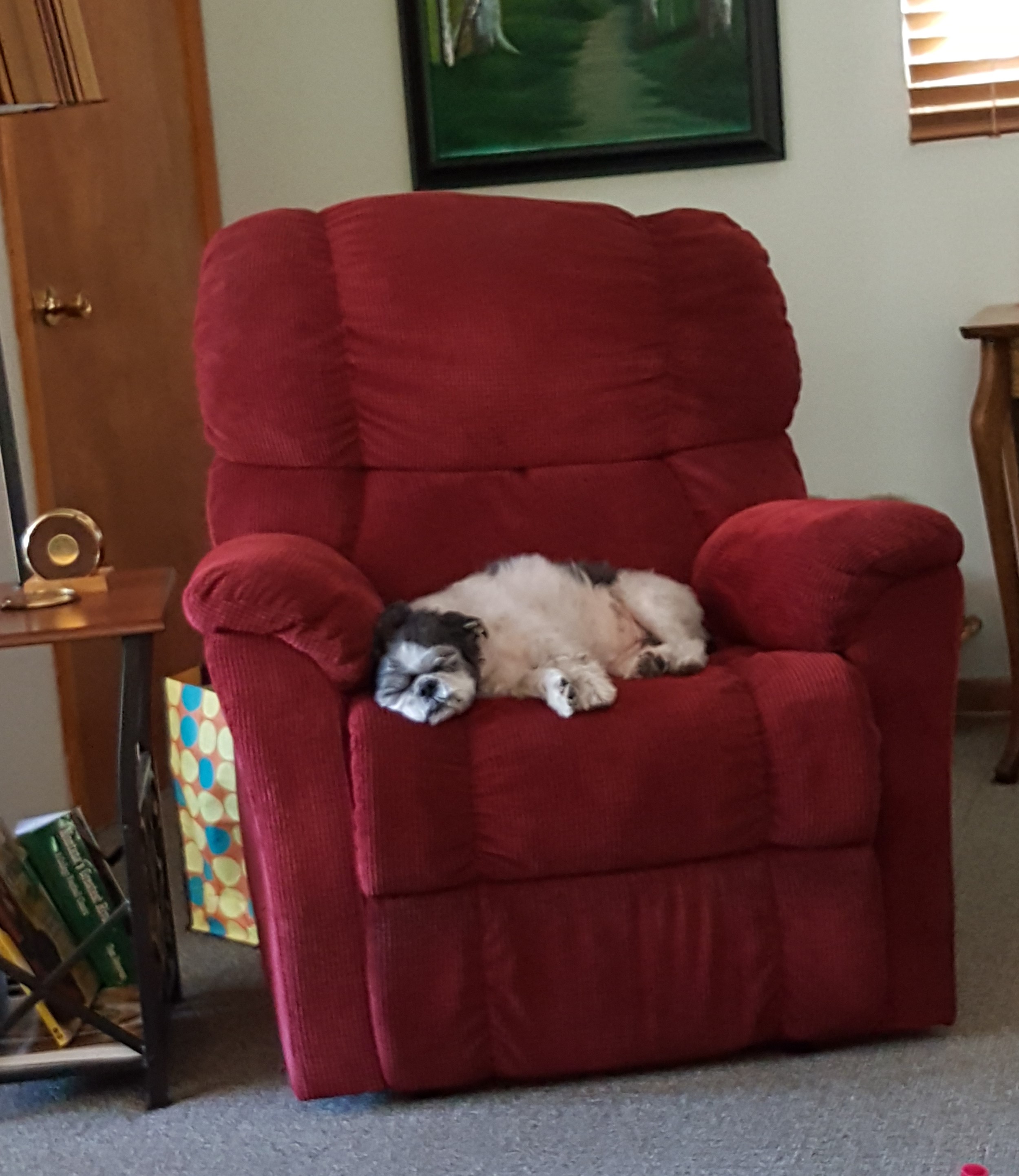This story is from my dear friend, Angie Klapuch. I think she wants me to share it.
*****
I was recently asked this question, “Did you ever want a sister?” My answer was that I never even thought about it. I’ve only had brothers. One older half-brother, one full brother, and one younger half-brother. I was the only girl and that was just the way it was.
For a few generations on my Dad’s side of the family, we were always told that we had a great-grandparent that was a full-blooded Cherokee. It certainly explained these high cheekbones. Also, verbal history said that the Hogue’s were of French descent.
In 2018, with curiosity high and the ballooning of DNA tests available, Dad and I decided we would do a DNA test to either confirm or dispute these oral histories that have been embedded into our family’s history.
The results came in and we are mostly Irish and Scottish.![]()
![]() No American Indian, no French. So, I don’t know where these cheekbones came from.
No American Indian, no French. So, I don’t know where these cheekbones came from.
Since then, our DNA has just been lying out there without any other major revelations.
Fast forward to September 14, 2022. I received a message from a lady stating that she had recently received her DNA results which showed that I was her half-sister and that my dad was her father. Needless to say, I was floored.
I was then tasked with the decision to either tell my 83-year-old father or not tell him. I didn’t take the decision lightly. Could he handle it? But, he is the only one that could provide some clarity. Maybe. Ultimately, I told him. He may be 83 but he is still very competent, independent, and makes all of his own decisions.
Dad was equally floored by this new information. Dad assured me that he was never aware of this child. But, here we were wrapping our minds around me having a big sister and dad having another daughter. Strange.
Dad’s emotions were all over the place. Angry that the birth mother didn’t tell him. Guilt and sadness that he didn’t raise his own child. Embarrassment that he had to talk about this with me. I kept it positive and non-judgmental. We both agreed that whatever questions or curiosities that this person had deserved to be answered. We were about to pull up our bootstraps!
In 1959, Dad was fresh out of the military and was back in California where his parents, siblings, aunts, uncles, and cousins lived. He was twenty.
He moved back to Louisiana in January 1960. This new daughter was born July 5, 1960. Dad turned 21 that same day. Yes, they share the same birthday!
She and I began exchanging pictures and histories. She was placed for adoption upon birth and was chosen by two loving parents and an older sister. Not only was I able to provide information about our family, but was also able to provide some information about her birth mother.
After a few weeks, I went out on a limb and invited her to our home for Thanksgiving. I really thought I was pressing my luck and was afraid I might have become too pushy. But, after a couple days, she responded back and accepted my invitation. She accepted an invitation to travel from Michigan to Tennessee to meet a bunch of strangers she knew very little about. All she knew was that we shared DNA and that was enough. She is brave and adventurous that is for certain. Maybe even a tad crazy…which just might be an inherited trait.![]()
So now I had to tell my Dad that she was coming and ask if he wanted to be here as well. Without hesitation, he said he would be here one way or another. He had a new daughter and nothing was going to keep him from an opportunity to meet her.
We gathered awaiting her arrival. Eli was here from NY. Dad was here from Arkansas. Anxiety was high. What will she look like? Does she look like us? Will she like us? Does she want a relationship? Do we want a relationship? Heads swirling, hearts racing.
Let me just say, Thanksgiving could not have been better. This stranger, who is a stranger no more, is kind, smart, and intriguing. She is incredibly thankful for our willingness to open our hearts to her; and, vice versa.
My dad is a quiet man who internalizes pretty much everything. He has allowed himself to be vulnerable. The two of them talked non-stop for the five days she spent with us. They have talked on the phone multiple times since they’ve both been home. Dad keeps telling me that they have 62 years to catch up on. Yes, they do.
All of Dad’s anxieties have melted away and this experience has been nothing but positive for him. It’s as if a new breath of life has filled him, and I know I made the right decision telling him.
So, back to the question, “Did you ever want a sister?” The question she should have asked was, “Do you want a sister?”
Yes, Barbara Jan Rumple, I do want a sister and I am thankful it’s you.






 Dad turns eighty-nine in September. He’s fallen several times since Christmas, the time when his scleroderma started acting out as if on a mission. Some days, he’s needed help to get out of his old favorite recliner–or actually any chair he sits in. His legs won’t hold him up without his Rollator, and several times a day, he can’t even move his feet holding to the walker.
Dad turns eighty-nine in September. He’s fallen several times since Christmas, the time when his scleroderma started acting out as if on a mission. Some days, he’s needed help to get out of his old favorite recliner–or actually any chair he sits in. His legs won’t hold him up without his Rollator, and several times a day, he can’t even move his feet holding to the walker.


